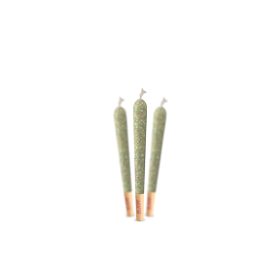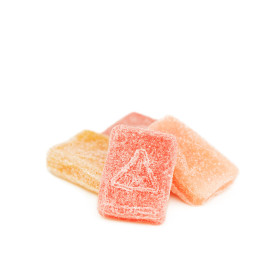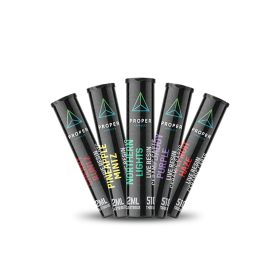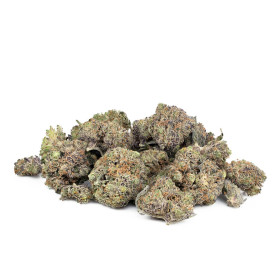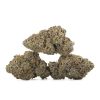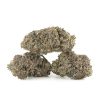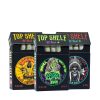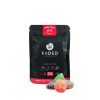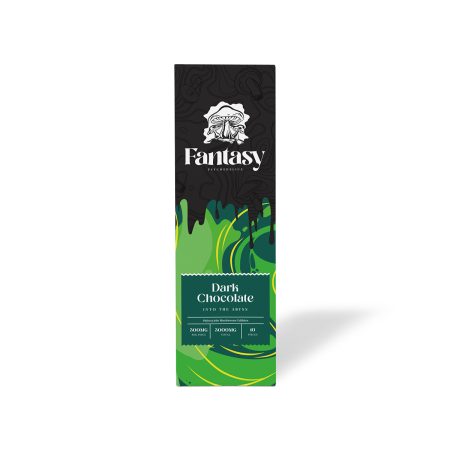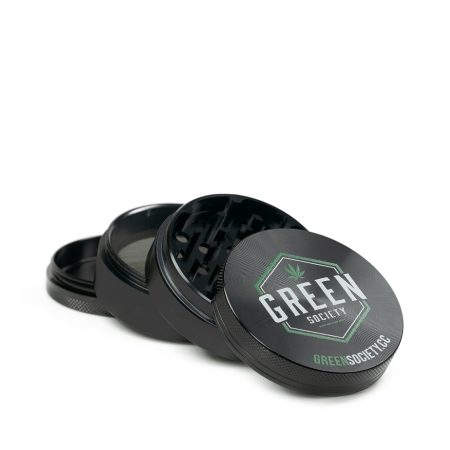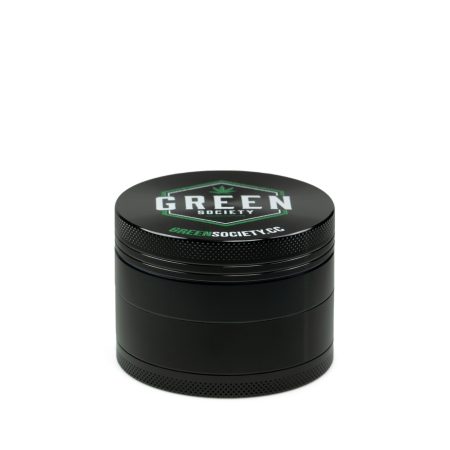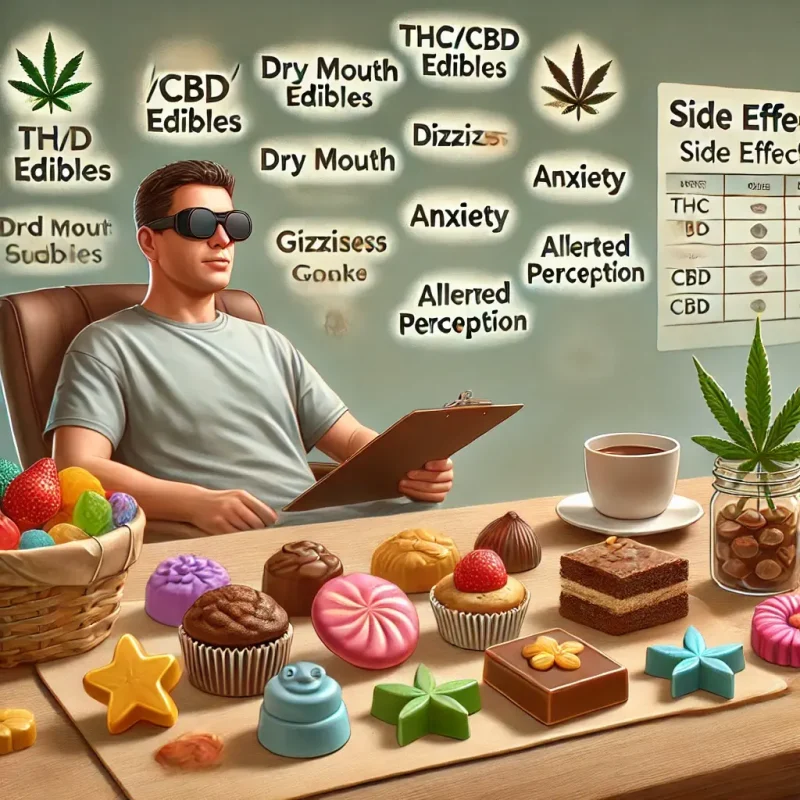Marijuana
Understanding the Potential Side Effects of THC/CBD Edibles
THC and CBD edibles have gained popularity in Canada for their convenience and long-lasting effects. However, understanding their potential side effects is crucial for making informed decisions about their use. This article explores the possible adverse effects of THC/CBD edibles, interactions with medications, and specific concerns about kidney health.
What are THC/CBD Edibles?
THC (tetrahydrocannabinol) and CBD (cannabidiol) are two primary cannabinoids found in cannabis. Edibles infused with these cannabinoids offer an alternative to smoking or vaping. They come in various forms, such as gummies, chocolates, and beverages, providing a discrete and often more palatable way to consume cannabis.
Potential Side Effects of THC Edibles
Short-term Effects
- Delayed Onset and Prolonged Duration: Unlike smoking, the effects of THC edibles take longer to manifest—often 30 minutes to 2 hours after consumption. However, these effects can last several hours, leading to prolonged intoxication.
- Psychotropic Effects: THC is psychoactive, which can result in euphoria, altered perception, and impaired coordination. In high doses, it may cause anxiety, paranoia, or hallucinations.
- Physical Discomfort: Users may experience dry mouth, red eyes, and increased heart rate. Some individuals report dizziness or nausea, especially if they consume more than intended.
Long-term Effects
- Cognitive Impact: Chronic use of high-dose THC edibles can affect memory, attention, and cognitive function. These effects are more pronounced in adolescents and young adults.
- Mental Health Risks: Regular use of THC, particularly in high doses, is linked to an increased risk of developing mental health issues such as depression and anxiety.
Potential Side Effects of CBD Edibles
Are There Any Negative Side Effects from CBD?
CBD is generally well-tolerated and considered non-psychoactive, meaning it doesn’t cause a “high.” However, some side effects may occur:
- Digestive Issues: CBD can cause diarrhea and changes in appetite or weight.
- Fatigue: Some users report drowsiness or fatigue, particularly at higher doses.
- Interactions with Medications: CBD can interact with certain medications, altering their effectiveness or causing adverse reactions.
What Medications Should Not Be Taken with CBD?
CBD can inhibit the enzyme cytochrome P450, which is responsible for metabolizing many pharmaceuticals. This interaction can lead to higher levels of these drugs in the bloodstream, increasing the risk of side effects. Medications to watch out for include:
- Blood Thinners: Such as warfarin and clopidogrel.
- Antiepileptic Drugs: Including clobazam and valproate.
- Antidepressants: Such as SSRIs (e.g., fluoxetine) and SNRIs (e.g., duloxetine).
- Pain Medications: Including certain opioids and NSAIDs.
It is crucial to consult with a healthcare provider before combining CBD with any prescription medications.
Are Edibles Bad for the Kidneys?
Current research on the effects of cannabis edibles on kidney health is limited. However, some studies suggest potential risks:
- THC Impact: THC’s psychoactive properties can increase blood pressure and heart rate, which may strain the kidneys, particularly in individuals with preexisting conditions.
- CBD Impact: While CBD is generally considered safe, high doses may impact liver enzymes, which play a role in kidney function. This effect underscores the importance of moderate dosing and medical supervision.
What Do CBD Gummies Do to Your Body?
CBD gummies offer a convenient and enjoyable way to consume cannabidiol. Here’s how they affect the body:
- Pain Relief: CBD has anti-inflammatory properties that can help manage chronic pain and conditions such as arthritis.
- Anxiety Reduction: Many users find CBD gummies helpful for reducing anxiety and promoting relaxation without the psychoactive effects of THC.
- Improved Sleep: CBD can enhance sleep quality by addressing underlying issues such as anxiety and pain.
- Neuroprotective Effects: Emerging research suggests that CBD may protect brain health and support cognitive function, although more studies are needed.
Comparing Edibles to Other Consumption Methods
Edibles vs. Smoking
- Health Impact: Smoking cannabis exposes the lungs to harmful toxins and carcinogens. Edibles eliminate these respiratory risks but come with their own set of challenges, such as delayed onset and dosing difficulties.
- Dosage Control: It’s easier to control the dosage with smoking or vaping since effects are felt almost immediately. Edibles, however, require careful portioning to avoid overconsumption.
Edibles vs. Tinctures and Oils
- Ease of Use: Edibles are often more convenient and appealing than tinctures or oils, especially for those who dislike the taste of cannabis.
- Onset and Duration: Tinctures and oils can be absorbed sublingually (under the tongue), offering faster onset than edibles but shorter duration.
Safe Consumption Practices
Start Low and Go Slow
When trying THC or CBD edibles for the first time, start with a low dose (e.g., 2.5-5 mg of THC) and wait at least two hours before consuming more. This approach helps avoid unpleasant side effects and allows you to gauge your tolerance.
Read Labels and Packaging
Ensure you purchase edibles from reputable sources with clear labeling on THC/CBD content. Proper labeling helps you understand the potency and make informed dosing decisions.
Store Safely
Keep edibles out of reach of children and pets. They often look like regular candy or snacks, which can lead to accidental ingestion and potentially severe effects.
Legal Considerations in Canada
Regulations and Guidelines
In Canada, cannabis edibles are legal for adults over 18 (19 in some provinces). However, they are subject to strict regulations:
- Packaging: Edibles must be sold in child-resistant, plain packaging.
- THC Limits: Each package can contain a maximum of 10 mg of THC.
- Lab Testing: Products must undergo rigorous testing to ensure they meet safety and quality standards.
Navigating the Market
Purchase edibles from licensed dispensaries or online retailers that comply with Health Canada’s regulations. Avoid unregulated sources, as these products may not be safe or accurately labeled.
Conclusion
THC and CBD edibles offer a versatile and enjoyable way to experience the benefits of cannabis. However, understanding their potential side effects and interactions is crucial for safe and effective use. By starting with low doses, consulting healthcare providers, and choosing reputable products, Canadians can enjoy the advantages of edibles while minimizing risks.
For more detailed information, please refer to the article on Medical News Today: Effects of Edibles

